
Would you buy 8-inch iPad?
Wall Street Journal claims that Apple is testing a smaller tablet, around 8 inches. The question: Would you buy one, if available?
Who knows, maybe your answer will help Apple, given how super-secretive is the company's product development. You can be the customer research Apple should seek before launching new products, particularly now that Steve Jobs -- master of good taste and guiding voice of one -- is gone. Please answer in comments and take our poll. But first read this perspective on what 8 inches could mean.

OneNote for Android is here -- get it now or live with regret
For years, OneNote seemed like a promise without purpose. Microsoft developed a fresh, flexible application capable of pulling together content from many sources and in a way that made creative sense. Sure the Office family member imitated note-taking software already available for the Mac, but with surprising approachability for Microsoft-developed Windows software. But who really used OneNote?
Then during the Office 2007 release cycle, Microsoft swapped out Outlook for OneNote in the low-cost consumer edition and millions of users discovered the promise. But not the purpose. Microsoft would later imbue that quality quite unexpectedly by connecting OneNote to SkyDrive. Sync is the software's killer capability -- that gives purpose to promise behind great usability and remarkable flexibility. Where OneNote and SkyDrive really, well, sync is on mobile devices. Windows Phone, then iPhone, iPad and, today, Android. Yeah, if you use OneNote on the PC and are a two-timing Android user, grab the phone. Microsoft has got a treat for you.

Has the 'App Economy' landed you a job?
A new study from CEO network TechNet suggests that the surge in smartphone and device app development has created 466,000 jobs since 2007, welcome news for those looking for positives in an otherwise tough economy. But has it landed you a job?
The study, conducted by former chief economist for BusinessWeek Dr. Michael Mandel took into account not only the "pure" app development firms like Zynga, but also companies where apps have become a necessary secondary business such as Electronic Arts or Amazon, and even those providing infrastructure and platform support for the App Economy including Google, Apple, and Facebook.
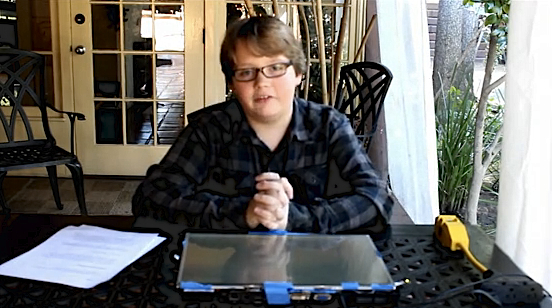
All you need is a good idea and a little Kickstarter
As a software developer I can appreciate how important it is to have good ideas. The challenge is making them reality. Also it is not enough just to be taught a skill, one needs to be able to put it to work doing something valuable to others. Some of the best ideas come from people who aren't just trying to make a buck, but who love what they are doing and see the real value in it.
Sadly many a good idea never makes it beyond the drawing board. But some people don't give up so easily and with a little Kickstarter amazing things can happen. Recently, I discovered two unique examples of very good ideas turned into reality by taking advantage of this unique website.
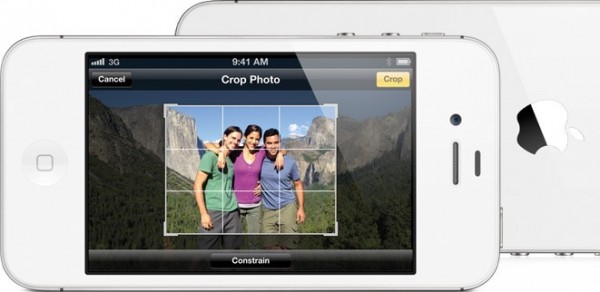
Apple jumps from fifth to third place in global phone shipments
Manufacturers shipped 1.546 billion cell phones last year, up 11.1 percent from 2010. Apple posted the strongest gains for the quarter and year -- 128.4 percent and 96.2 percent, respectively. The Cupertino, Calif.-based company ended both time periods in third place. No other vendor came even close. Samsung was up nearly 21 percent for the quarter and ZTE 30.9 percent for the year. IDC compiled the data, which represents shipments into the channel, rather than sales to end users.
Apple's strong showing comes from a huge fourth-quarter finish -- 37 million handsets, all smartphones. By comparison, Nokia and Samsung sold many more feature phones, which still overwhelmingly account for the number of handsets shipped globally. "Feature phones accounted for a majority of shipments from four of the five market leaders during the quarter", Ramon Llamas, IDC senior research analyst, says. "Even though their proportion is eroding, feature phones maintain their appeal on the basis of price and ease of use".

GooReader: When you need Google Books to go
Google Books is a gigantic and ever-expanding online library of books and magazines that can be used to read classic titles free of charge as well as to purchase new releases in all manner of categories. But you may be one of the many people who have found that the interface for the website and the way you interact with books leaves a little to be desired. Enter GooReader, a desktop app that enables you to browse your books both on and offline.
You can take advantage of a handy interface that makes it easy to navigate through the pages of your books and you can also zoom in and out, which is great if you are using a laptop with a smaller screen, and perform searches. All of the books you have purchased can be accessed from within the app and organization of your library is delightfully simple. When it comes to lengthy tomes or even an average sized novel, bookmarks can be used to quickly jump the place you left off.
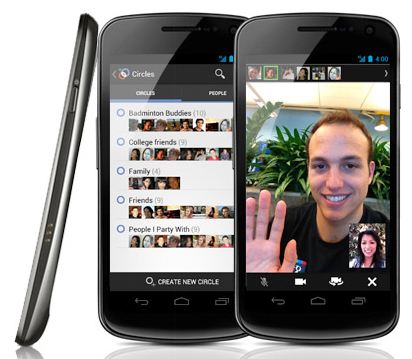
Thanks, Verizon! Shared data plans are long overdue
We've all been sharing minutes in our family plans. This worked in an age where our phones were dumb, and the most we did was text and occasionally check the web. Times have changed though with all these smartphones in the wild, but the carriers have not. Where's our shared data plans?
Color me shocked, but Verizon is joining that charge. The nation's largest carrier said last month that it was introducing pooled data plans this year, and a new post on Engadget indicates this may be coming sooner than we think. A new section lists "account level data plans". Like your minutes you pay an account level charge, then a per line charge.
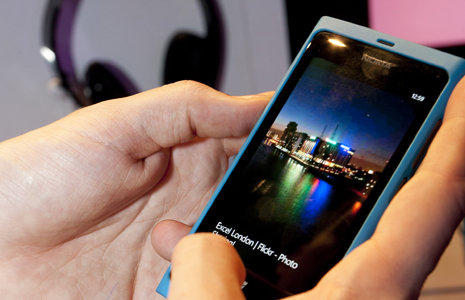
Microsoft invests $1 billion to sell a million Nokia Windows Phones
At face value, Nokia's results for Windows Phone are solid. One million Lumia devices sold in just its first quarter of availability. The sales add a bright spot to an otherwise gloomy Nokia calendar fourth-quarter earnings report, where smartphone sales slid 31 percent amid a 21 percent year-over-year drop in revenues.
The real story here though is the cost to Microsoft to ensure that success. Microsoft agreed to pay Nokia $1 billion to abandon Symbian as primary operating system for Windows Phone, according to reports soon after the deal was announced in February 2011. The Redmond, Wash.-based company paid Nokia $250 million in the fourth quarter for "platform support payments", meaning each device cost Microsoft about $250 before any royalty payments received. That's a run rate of a billion dollars per year. So just how much is Nokia giving back to Microsoft?
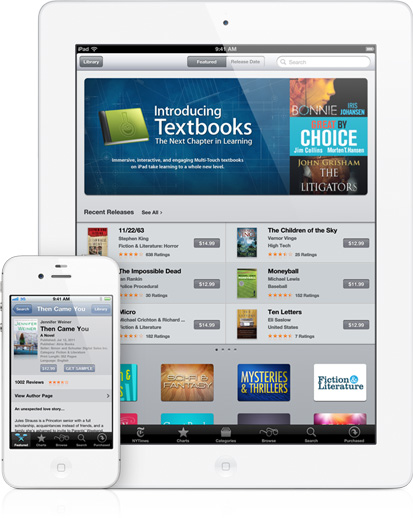
Why do smartphone owners buy tablets?
For a company which business depends on collecting data, Google sure was slow tabulating its report on smartphone usage. The study is available today, but the data is already outdated given strong holiday e-book reader and tablet sales and global impact of 37 million iPhones sold during fourth quarter -- the startling number Apple released yesterday. Still there are some fascinating trends here that likely will prove true had Google collected data in December or January rather than September-October.
What I find perplexing: 17 percent of US smartphone owners also have tablets -- 11 percent in Japan, 10 percent in United Kingdom and 8 percent each in France and Germany. Note: This data, as the rest, is for smartphones privately used. The percentages likely would be higher when including business use, and the trend is accelerating, says Google. My question, and this is really for you to answer: Why buy a tablet if you have a smartphone? Remember, Google isn't tracking PC owners who buy a tablet, but smartphones users who do.
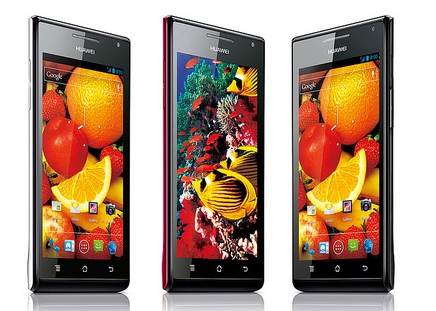
Huawei's thin smartphone leads slate of compelling mobile devices at CES
There's always the race at the Consumer Electronics Show to be the smallest, the lightest, the thinnest, the biggest. Huawei is following that strategy, debuting the Ascend P1 S on Monday. At 6.68mm thick, it claims to be the thinnest smartphone on the market. For comparison purposes, look at iPhone 4S, which measures in at comparatively stout 9.33mm, or the Galaxy S II, also a little overweight at 8.49mm.
The Ascend runs Android 4.0 Ice Cream Sandwich, and features a 4.3-inch screen with Corning's Gorilla Glass. You have to wonder though if Huawei waited a bit could it have slimmed down the Ascend even more with the new thinner Gorilla Glass 2. Other features include a 1670/1800mAh battery depending on the model, 8-megapixel rear-facing and 1.3-megapixel front-facing cameras, HD picture capabilities and integrated WiFi and Bluetooth.
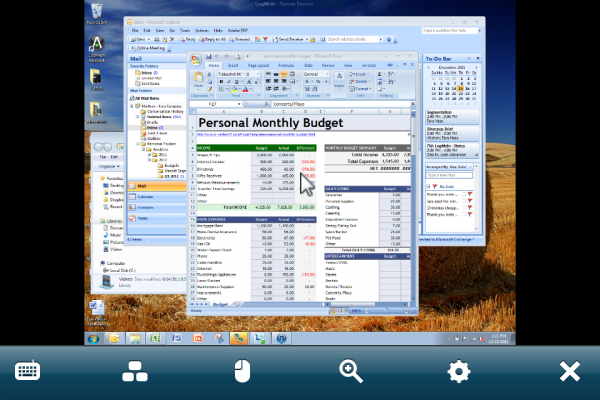
LogMeIn Free for iOS mini-review
In both the home and work environment, there are numerous uses for remote access tools. For home users, the ability to not only access the files stored on a computer housed in another room but also take full control of it as if you sit in front of it can save a great deal of legwork reviewing a document you need to read or checking the status of a download, all without having to run up and down stairs. Used for work, the possibilities are almost limitless. Network administrators can control their entire network from almost anywhere -- homeworking becomes a possibility for a far larger number of people; the list just goes on and on. There are a number of remote access tools available for iOS, LogMeIn is not only one of the best known, it is also one of the best. And the great news is that it is now completely free of charge.
The app was previously available for $30, and while many people could see the benefits of using such a powerful and useful tool, the price was a little off-putting. With the launch of a free version of the app, which is mercifully light in the restrictions department, the world of VPN has opened up to a whole new audience who are now able to take advantage of remote access from a well-known name without having to part with any cash.

You got a new smartphone or tablet for Christmas, what about a case?
I don't understand why so many people buy gel cases and similarly-designed others for their smartphones. Why would you want to protect the back when the screen is more vulnerable (perhaps with exception of iPhone 4 and 4S, which are glass front and back)? Yes, these cases help protect against shattered glass when the phone is dropped sideways. But surely something better than your bum should protect the screen, assuming the smartphone is in your pants pocket and not backpack or bag -- there it's scratch-station central, baby.
Just because Apple Store, Best Buy, cellular phone shops or mall kiosks overwhelmingly sell cases that wrap round the smartphone's back doesn't mean there aren't alternatives -- and ones that will protect the whole device not just the already well-insulated back. Styling is more traditional, and leather, too (If you're Mr. or Ms. Vegan, this post probably isn't for you). Many of these same manufacturers produce cases for tablets, so I'll briefly discuss them, too.

Your next camera is a smartphone (if it isn't already)
Earlier this week I sold my Fujifilm FinePix X100, one of the best digital cameras I've owned, since buying my first in 1997. I gave up the delightful X100 for two reasons: I needed cash to pay for the Verizon Galaxy Nexus and because the Google phone is digicam enough for me. I'm not alone, based on survey data NPD released today.
NPD reports a 10 point increase in photos taken with smartphones and nearly corresponding number taken with digital cameras -- that 17 percent to 27 percent and from 52 percent to 44 percent, respectively, year over year. The data is for the United States. What about the nearly 30 percent remaining? Is film still that popular? I asked NPD. Nope. Camcorders and dumb phones account for the remainder. Well, tell that to Lomography!
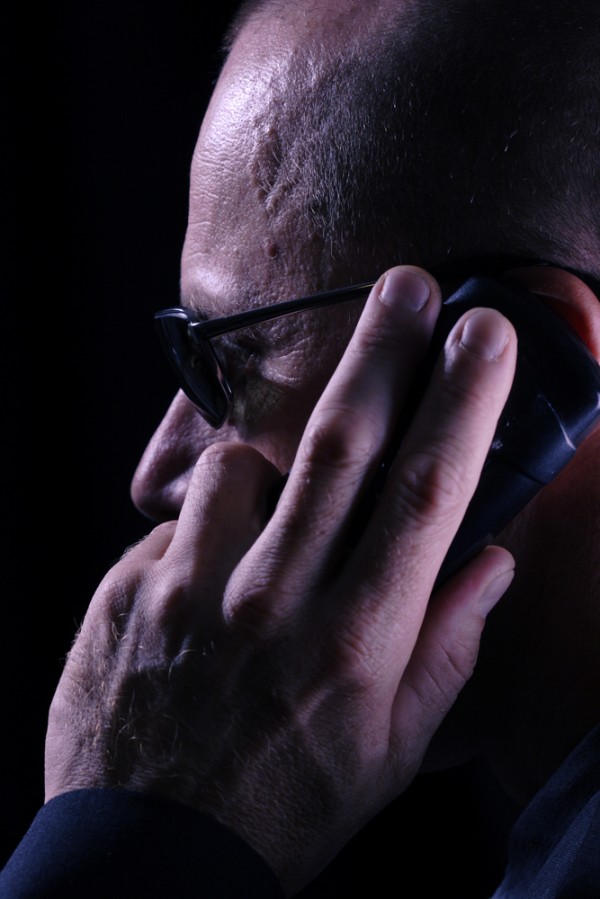
Does your phone have Carrier IQ? Now you can know
I offer a hat tip to Gizmodo, which has put together a list of smartphones that have Carrier IQ. The company disclosed the information as part of a US Senate inquiry. Sprint subscribers are the most likely to have the spyware installed -- 26 million, or nearly half of them. Verizon: None. The information is also available in a statement from Sen. Al Franken (D-Minn.), just not as quickly scannable.
But not all phones where Carrier IQ is installed have it active. Android developer Trevor Eckhart uncovered Carrier IQ last month, offering detailed explanation how the rootkit-like software works. I followed his instructions to see if the software was active on my Samsung Galaxy S II Skyrocket, and it appeared not to be. Days later I installed Carrier IQ detectors from BitDefender and LookOut Labs, which found the software but didn't indicate its status. Apparently, Skyrocket is one of the phones where Carrier IQ is installed but not active. Same is true of HTC Vivid, AT&T's other LTE phone.

What is Microsoft's problem with Android apps?
Suddenly, Microsoft is a major developer for iOS. The software giant better known for Windows dropped three iOS apps or updates in just two days, and there are rumors of more coming (e.g. Office). But what about Android? "What about Android?" you ask, surprised. "Why should Microsoft give a hoot's fart app about Android? Google and open source are reasons enough why not Android". Yes, but Microsoft makes heaps of money from Android. Nothing from iOS.
Shouldn't Microsoft support the platform that is more personally profitable? The Redmond, Wash.-based company now has convinced most major Android developers to pay licensing fees, presumably because the open-source OS violates Microsoft patents. Perhaps threat of lawsuit is enough. It's serious money, too, $10 or more per device -- if rumors are to be believed. "Patent trolling with Microsoft" I called it in July. Microsoft makes what from iOS? Diddly.
